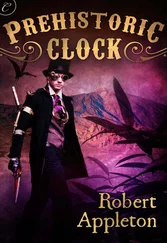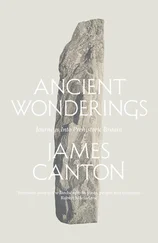THE SUN is a giant spider that squeezes a lemon then swallows an airplane. The sea is a wall that the fish swim along or hug, some flaunt themselves, a boat drifts by. Elsewhere a sail is a pyramid wearing a palm tree for a hat, a palm tree that would be the schoolmarm in her smock. The chimney on the roof of the house would not fit through the door, black smoke belches from it, someone must be burning a tire in the hearth. The path winding through the patch of garden places the house it leads to a three-day walk from the street. A cow gnaws a ski in front of its nest box. The next-door neighbor mows his lawn with a baby stroller. Every tree bears its fruit, each color produces its plum, the apples would have an adorable little smile and would not cost more — and here the soft lead slips and breaks, pierces the paper, I’m pushing too hard, squeezing the pencil in my fist like a fork, but that’s not how one holds one’s fork either they tell me; I used to draw a lot back then and I painted on large sheets of paper with water of every color. Then again, at such a young age, coloring books already bored me to death, and I soon went over the edge: filling in the empty shapes, reddening the squirrel along with the leaves, spending my days under Snow White’s skirts like the least of her dwarves, no way, I had better things to do, more ambitious projects that I began to carry out immediately.
My entire oeuvre has vanished. And the child I was has already been swallowed by oblivion, total oblivion, without the least hope of a triumphant future rehabilitation, and even its tender shattered skeleton, decomposed, will never be reconstituted. Perhaps my old fractured femur will be exhumed. Posterity does surprising things. But what remains of a man whose work has come down to us? What living memory? What margin of freedom to advance or retreat, what capacity to react to or resist the official biographical fiction that slowly replaces the simple truth of the facts? We’ll soon see. Let’s go back to 1749. Louis XV has been reigning in his own right for six years when Marie Appert, née Huet, gives birth to her fourth and last son, Nicolas, on November 17 in Châlons-sur-Marne, as we can see on the baptismal certificate lovingly preserved by the Archives of the Department of the Marne: “In the year of our Lord one thousand seven hundred forty nine, on the seventeenth of November, I, priest of this parish, baptized a son, born this day of the legitimate marriage of Claude Appert, innkeeper of the White Horse, and Marie Huet, to whom was given the name of Nicolas.” The child is lively, joyful, and his inventive mind can already be seen in the innocent games of youth: exposed to a temperature of 327 degrees centigrade, his friends’ lead soldiers are reduced to mush, victory! — eliciting the apprehensive admiration of his parents and teachers. Claude’s strictness, in effect, does not keep him from acknowledging his son’s merits, and Marie’s preference for her little last born is so obvious that his three brothers need no longer appear here. Nicolas’s love for this adoring and gentle mother would never flag. At the White Horse Inn at first, and then in the twenty-room Hôtel du Palais Royal, life is comfortable and there young Nicolas successively learns the trade of distiller and confectioner, in Châlons in 1770, then in Paris in 1780, after eight years spent in the service of the taste buds of the Duc des Deux-Ponts, Christian IV, then the Princess of Forbach, who it is supposed was not entirely insensitive to the hopeless love of this sweet, clumsy, and attentive boy because she became his mistress, and even almost axed to death Jacotte, a twenty-year-old fresh-faced, plump scullery maid whom she came upon in her lover’s arms. He was fired forthwith, after which he opened his confectioner’s business in Paris on the rue des Lombards.
He is thirty-one. Imagine beneath his wide forehead a round face with blue eyes, a strong nose, thick lower lip; now place this very blond, curly head on a slender, wiry but energetic body; then remove from his pockets two long hands, delicate and ligneous with knuckles that protrude like the knots on a wild cherry tree; dress him in a new black velvet pourpoint and a jabot of sparkling lace, or a smithy’s apron, or a palm-leaf loincloth, enough, leave him be, Nicolas Appert is at thirty-one a small, restless, and efficient man, always on the go, and passionate about preserving perishable goods. He also becomes enamored of his cousin, Marie Bonvallet, and then comes the breakup. His secret affair with the countess of Gandilhon is the talk of the town, and then another breakup. Let’s not dwell on that. In 1796, it’s Napoléon Bonaparte’s Italian campaign, and Appert, preoccupied with the problem of getting food supplies to the troops, gives up his business. He continues his research in Ivry-sur-Seine, where he is appointed municipal officer on 7 Messidor year III and here he meets his future wife, Cécilia Lance, whom he weds when the time comes, but who dies shortly afterward in childbirth. We are now in 1804. He buys four hectares of land, which he uses for growing the peas and beans he needs for his experiments. Built on this same site, his factory employs up to thirty women, who are supervised by the faithful Jacotte, who will also be the discreet mother of his six (or seven?) natural children. Five years later, with his preservation process perfected, Mssrs. Parmentier, Bouriat, and Guyton de Morveau, having tested it, respectfully take their hats off to him. The newspaper Le Courrier de l’Europe , dated February 10, 1809, pays tribute to the event: “Mr. Appert has discovered the art of stopping the seasons: he has managed to bottle spring, summer, and autumn, like those delicate plants the gardener protects against inclement weather and parasitic insects beneath a glass dome.” The following year, he receives an award from the government in the amount of twelve thousand francs and publishes a soon-to-be-famous manual, The Art of Preserving All Kinds of Animal and Vegetable Substances for Several Years . But he breaks up with the countess of Herculais — she is capricious, impulsive, the relationship could not last.
In London in 1814, Appert meets the engineer James Watt, who teaches him about the advantages of steam over all other forms of energy. Incidentally, his affair with Susan Price runs out of the same and he returns to France, where a disagreeable surprise awaits him: the Restoration government has superstitiously turned his preserves factory into a hospital. Nicolas moves to Paris and gets back to work, despite growing financial difficulties. His affair with Jeanne Le Guillou dates from this period, as do the success of his research on the extraction of gelatin from bones, his first attempts at replacing too fragile glass jars by metal cans, and his breakup with the aforementioned Jeanne Le Guillou. In 1822 he is finally recognized officially: the Society for the Encouragement of National Industry awards him the title of Benefactor of Humanity, despite the efforts of the countess of Herculais, who tries in vain to have him banished to French Guiana. From that point on, Appert receives a small pension from the State. He diversifies his research and becomes interested in the extraction of oil from ox hooves, as if he hadn’t already done enough for mankind. In 1831, with his bouillon cube concentrate, he modestly puts the finishing touches on his life’s work — who is the man who would not want to bring to a close his persistent, patient, painstaking life by summarizing it in such an obvious and enduringly efficient turn of phrase? And yet he will live another ten years, miserable, abandoned, in the sole company of his old servant Jacotte, who is still blindly devoted to him but has also gone deaf and is almost totally crippled. Appert dies on June 1, 1841; let us transport ourselves to the age of Louis-Philippe. His body is tossed into the communal grave with three other private individuals, and the question must be asked: have I managed to resuscitate the right one? How can we be sure?
Читать дальше












